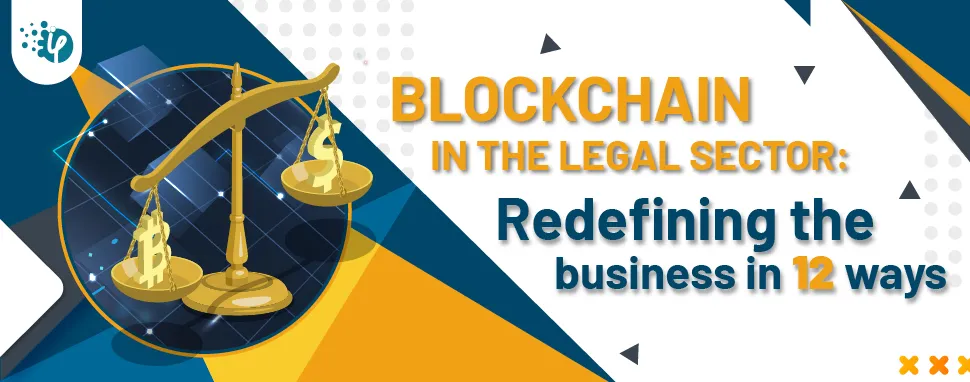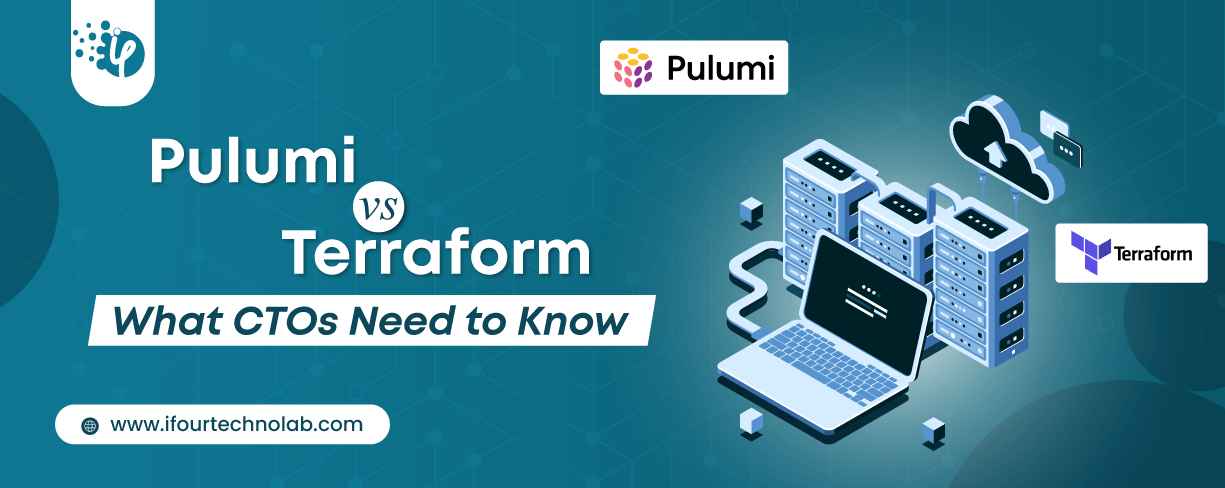How to Do Forecasting in Power BI (Steps & Accuracy Metrics)
Remember our last guide - Power BI forecasting? It revealed things that truly blocks accuracy, both structural and situational. Now it's time to take the next step. Knowing Power...
Listening is fun too.
Straighten your back and cherish with coffee - PLAY !

The legal sector plays a prominent role in preserving peace and order in the nation. As the field demands constant data monitoring and a deep understanding of laws, it is not easy for everyone to get a hold of it. To win a lawsuit, every legal expert focuses on two main factors: evidence and data confidentiality. In these circumstances, it is essential to find secure solutions rather than merely deploying security systems.
Blockchain is a remarkable technology that redefines the legal profession while providing excellent security. It assists lawyers in streamlining transactional processes and securely storing legal papers with electronic signatures.
Let's delve further to understand how blockchain is revolutionizing the legal business and why it is so important to the law profession.
Blockchain has the potential to revolutionize the legal industry by creating a new way of handling contractual relationships. By using blockchain, each party to a contract can have access to an immutable record of the agreement, which cannot be altered without the consent of all parties. This would enable greater transparency and collaboration in the legal sector, as well as increased efficiency and reduced costs.
There are already many innovative startups working on blockchain-based solutions for the legal industry, and it is likely that we will see more widespread adoption of this technology in the years to come. Ultimately, blockchain has the potential to streamline many aspects of the legal process, making it simpler, faster, and more efficient.
Transactional activity can be streamlined and simplified by using blockchain technology to digitally sign and store legal agreements which is extremely beneficial for the lawyers to fast pace their processes without the potential risk of errors. An inordinate amount of time is saved by utilizing scripted text in conjunction with smart contracts and automated contract management, all made possible due to blockchain integration in the legal industry.
The legal industry is one that is heavily reliant on documentation and paperwork. From contracts to court filings, so much of the legal process relies on the written word. And yet, the legal industry has been slow to adopt new technologies, including blockchain.
There are a few reasons for this. First, the legal industry is built on trust. Lawyers rely on one another to uphold the agreements they make, and the court system relies on the honesty of the participants in a case. Blockchain, with its built-in security features, could help to build that trust.
Second, the legal industry is conservative by nature. Lawyers are often reluctant to change the way they do things, even if there is a better way to do them. Blockchain is a new technology, and it can be difficult to understand how it works and how it could be used in the legal industry.
Despite these concerns, there are a number of ways in which blockchain could be used in the legal industry. For example, blockchain could be used to create smart contracts. These contracts would be self-executing, meaning that they would be automatically triggered when certain conditions are met.
This could streamline the contract-creation process and reduce the chances of disputes arising over the terms of a contract.
Blockchain could also be used to store documents and records. This would make it easier to track down and access important documents, and it would also help to ensure that the documents were not tampered with.
Finally, blockchain could be used to track payments. This could help to reduce fraudulent activities and ensure that payments are made in a timely and accurate manner.
Overall, blockchain has the potential to revolutionize the legal industry. While there are some concerns that need to be addressed, there are also a number of ways in which blockchain could be used to improve the efficiency and accuracy of the legal process.
Blockchain technology is still in its early stages, so its role in the legal industry is still being explored. However, there are a few potential applications for blockchain in the legal field.
One is using blockchain to create tamper-proof records of digital legal documents or to store them in a secure and decentralized way. Another is using blockchain to authenticate digital documents.
And, of course, we cannot forget about NFTs that are unique and cannot be interchangeable. This makes them perfect for use in the legal industry, where specific property and rights need to be tracked and recorded.
For example, NFTs could be used to represent shares in a company or to track the transfer of intellectual property.
The legal industry is one that is heavily reliant on documentation and record-keeping. Transactions, contracts, and other legal documents need to be carefully documented and stored in order to be used as evidence in a court of law. In the past, this has been done through the use of paper documents, which can be easily lost, damaged, or tampered with. In recent years, there has been a shift towards the use of electronic documents, which can be more easily stored and accessed. However, there is still a risk of these documents being hacked or altered.
Blockchain is a technology that can be used to create a secure, tamper-proof record of transactions or documents. It does this by using a distributed database that is shared by all of the users of the blockchain network. This database is constantly updated, so any changes to the documents or transactions stored on it are immediately visible to all users. This makes it difficult, if not impossible, to tamper with the data stored on the blockchain.
The use of blockchain technology could potentially revolutionize the legal industry. It could help to reduce the risk of data being hacked or altered and could help to speed up the transaction process. It could also be used to create tamper-proof records of documents and transactions, which could be used as evidence in a court of law.
For the legal industry, blockchain is poised to cause disruption on a number of fronts. One of the most promising applications is using blockchain for smart contracts. Smart contracts are automatically executed when certain conditions are met, and they have the potential to drastically reduce the time and cost associated with traditional contract negotiations.
In addition, blockchain can be used to create a tamper-proof record of ownership for physical assets like land or vehicles. This could streamline the process of property transfer and reduce the risk of fraud.
Finally, blockchain could be used to create a secure, decentralized database of legal documents. This would make it easier for lawyers to access the information they need, while also reducing the risk of data breaches.
In short, blockchain has the potential to revolutionize the legal industry by making it more efficient and secure.
As more businesses begin to adopt this technology, it will be interesting to see how the landscape of law changes in the years to come.
Blockchain technology provides a data verification platform and stores data securely, in an immutable manner. Furthermore, the decentralized and open nature of the system and the concept of smart contracts make it very beneficial for the legal industry.
Make sure no evidence has tampered with one of the most significant benefits of blockchain technology is that the information stored on it cannot be tampered with at a later date. If law enforcement submits all documents on the digital platform provided by the blockchain, it can ensure that there is no possibility of tampering.
In court, there are numerous instances of evidence tampering resulting in delayed cases or compromised decisions. Suppose the electronic contract stored by the traditional third-party electronic evidence storage platform is to be used as court evidence in the event of a dispute. In that case, the forensic identification report issued by the forensic identification center is the key. Whether it is a state-approved technology, forensics technical means, and other aspects are identified. Therefore, to truly become court evidence, an electronic contract must go through many reviews.
When the court judges a case, it will generally make a comprehensive judgment on the electronic evidence in combination with court inquest, other evidence, and high probability proof standards to conclude. However, tampering with evidence is nearly impossible due to the immutable and non-corrupt platform provided by blockchain technology.
In addition to this, the blockchain platform provides permanent storage for records. So, the data can be accessed even if the case goes on for years.
Blockchain technology offers legal professionals’ considerable benefits when it comes to financial disputes. Leaving a trail of money works better with blockchain technology, where an open distributed ledger can ensure that everyone knows where money is coming from and where it is going. Regarding patents, trademarks, copyrights, and other intellectual property-related issues, they can also be resolved promptly.
A smart contract is a set of commands that will run fixedly based on various triggers and conditions. It is an automated system that ensures compliance with legal agreements. These can be used to enforce the legal framework: When the goods are delivered, the merchant must pay the trader. The merchant stores his funds on the blockchain network, and once the goods arrive at the merchant, the delivery is recorded on the blockchain, and the funds are released from the blockchain network to the trader's account.
It is not only beneficial to the legal industry but also has a wide range of applications in other industries. In the legal world, documents and written information must be sent from one place to another before being filed in court. Sometimes this process can take days and risk damage. Through the blockchain platform, high-speed and secure transmission can be ensured.
Blockchain could have numerous use cases in the legal industry, including land registries, smart contracts, intellectual property rights, litigation and settlements, a chain of custody, and financial transactions. These use cases showcase the major impact of blockchain in the legal industry. Moreover, as a database, a blockchain stores information electronically in a digital format.
These are well-known for their vital role in cryptocurrency systems, for example, Bitcoin, and for maintaining a secure and decentralized transaction record. The legal industry has been gradually modernizing, and enterprise Ethereum reduces labor-intensive manual processes while providing maximized accessibility, cost savings, and transparency to the legal industry.
Setting up property rights could be a minefield, and disputes are commonplace. Most records are kept in hard copy form, with reams of deeds, ledgers, and similar paperwork often going back decades. Even when the details are held in a digital format, more often than not, it consists of scans of the original hard copies, loaded with whatever database the company deems most logical for their needs.
This implies data being misfiled, poor transparency or deleted, conflicting masses, and records of time spent locating what you need. Therefore, blockchain provides a chronological, secure, and immutable method of preserving this data, making it a lot easier to recognize the history of a specific piece of property.
The biggest use case of Blockchain in the legal industry is smart contracts. All legal contracts are written with physical signatures, which require much time to achieve a binding legal covenant. Because of the manual processing of legal documentation, it's susceptible to human mistakes. Blockchain could bring this to a stop by making legal documentation more transparent and accessible.
Creating a contract that can quickly execute based on when particular requirements are met reduces the friction and cost of generating and securing legal covenants. Anybody can create smart legal contracts on the Blockchain by creating a digital contract, and lawyers authenticate it.
Blockchain technology has the potential to revolutionize the legal industry by providing a secure, transparent, and immutable ledger. This will make it easier for people in different countries to do transactions and provide an efficient way of transferring money without involving third parties. Blockchain technology can be applied in many different ways to make the legal system more efficient. For example, it can be used for smart contracts which will help with the enforcement of contracts and could potentially reduce fraudulent practices. Blockchain helps to solve the problems of trust and security in data management by providing transparency. This technology has the potential to make legal processes more efficient, cost-effective, and reliable.
Blockchain technology has been popularized with the rise of cryptocurrency, but it has great things to offer to many different industries including the legal one.
Right now, we are seeing only sporadic use cases for the technology, but here are the benefits that blockchain can bring to the law if widely implemented:
Safety. Instead of keeping the contract on just one computer, blockchain makes hundreds of copies of it across many devices, overruling the risk of losing the original. Moreover, a hypothetical hacker cannot obtain the document and make subtle changes to it for his own benefit. Any amendments within the blockchain produce a vastly different hash function and thus are clearly visible
Transparency. On the blockchain, everyone can view the contract. It removes all third parties, the delays, and increased fees that come with them. Because of this, legal operations within the blockchain will be much more comprehensible for outsiders without losing the authority but even increasing the overall trust for the **system
Efficiency. Currently, lawyers spend a lot of time preparing legal documents in order for them to comply with the standards. If this is done automatically, it speeds up the whole process and again decreases the cost.
Lucidity. Blockchain leaves no room for misinterpretation or fraud: all smart contracts are executed automatically by principle.
Blockchain can help with all types of contracts and legal documents concerning
Loans, shipments, agreements, partnerships, etc. The potential use cases include machine payments, electronic signatures, regulatory compliance, intellectual property, and many more
Although national legal systems are hesitant to introduce large-scale changes, in the future we may see the blockchain being notably implemented or even replacing lawyers in some instances.
The legal industry, which is among the oldest and most complex industries, demands a thorough comprehension and assimilation of the law. It entails continuous data monitoring and calls for more than just implementing security systems. Blockchain is a remarkable solution that has the potential to drastically change the legal industry through digital procedures. This article explained in great depth how blockchain transforms the legal business and why it is so crucial to the legal field.

Remember our last guide - Power BI forecasting? It revealed things that truly blocks accuracy, both structural and situational. Now it's time to take the next step. Knowing Power...

Security has always been a major concern. Your company spends millions on cybersecurity tools, and guess what? You’re still vulnerable. When you're working in the cloud, especially...

Automation isn’t just a trend anymore. It’s a must-have for any business relying on the Cloud. As the firm grows, cloud infrastructure gets more complex. So, choosing the right Infrastructure...